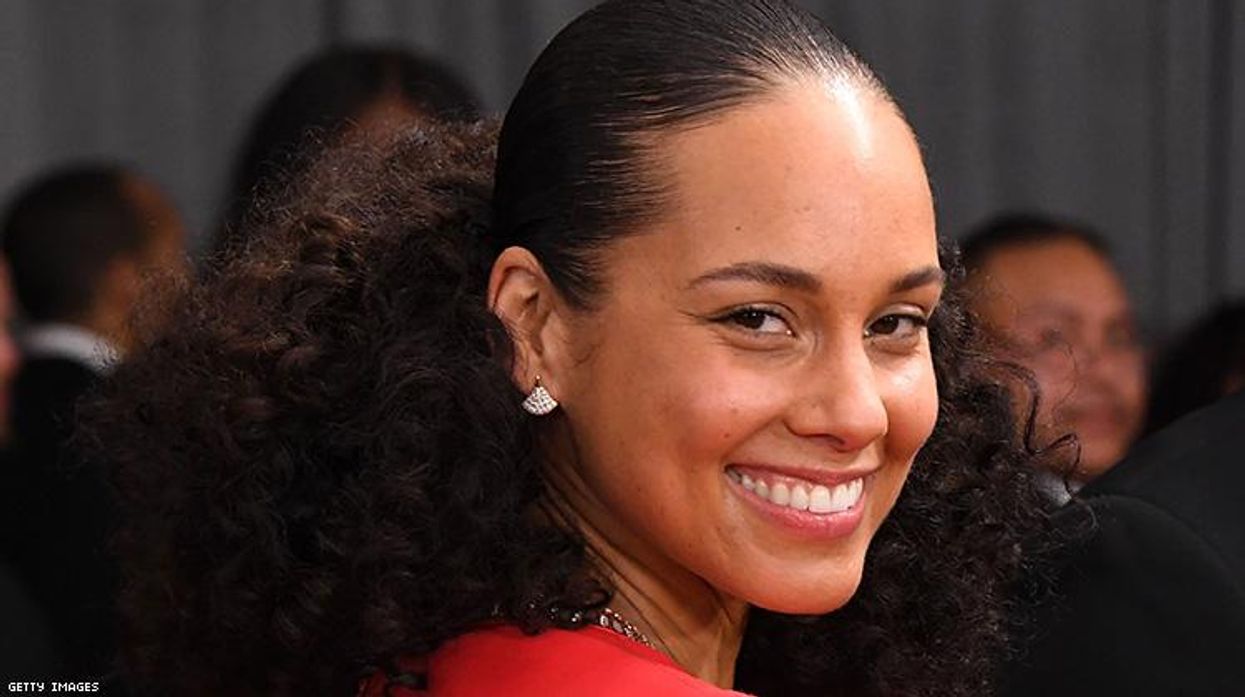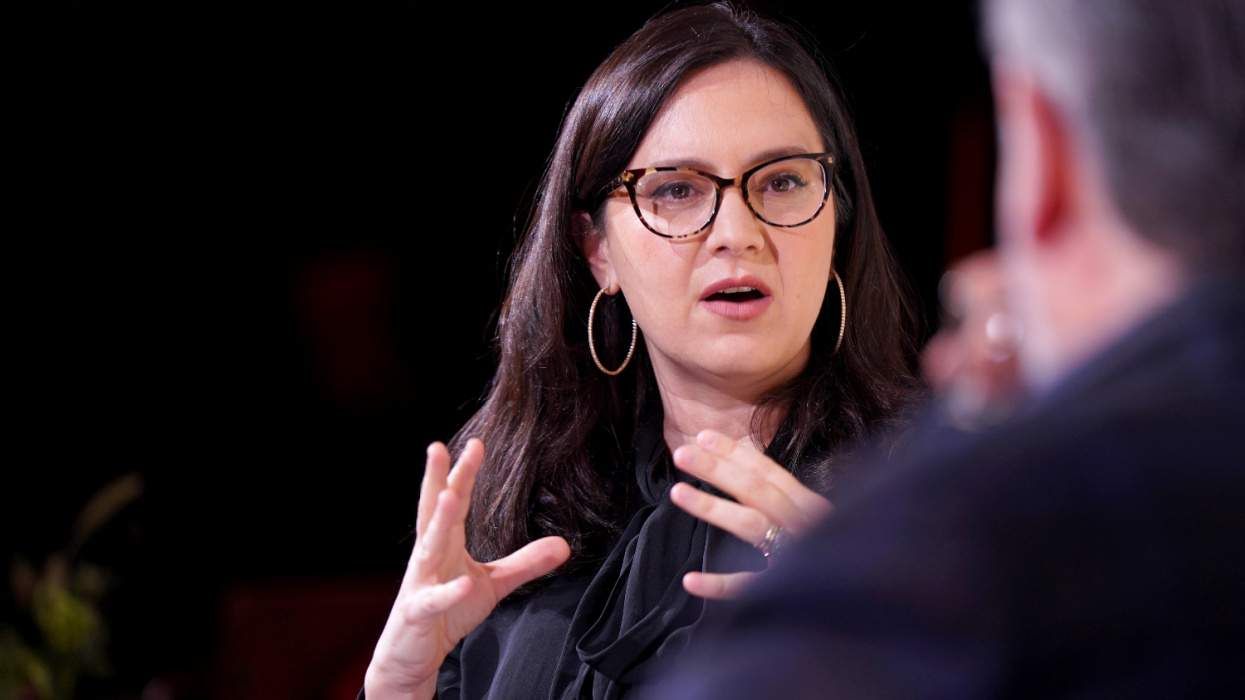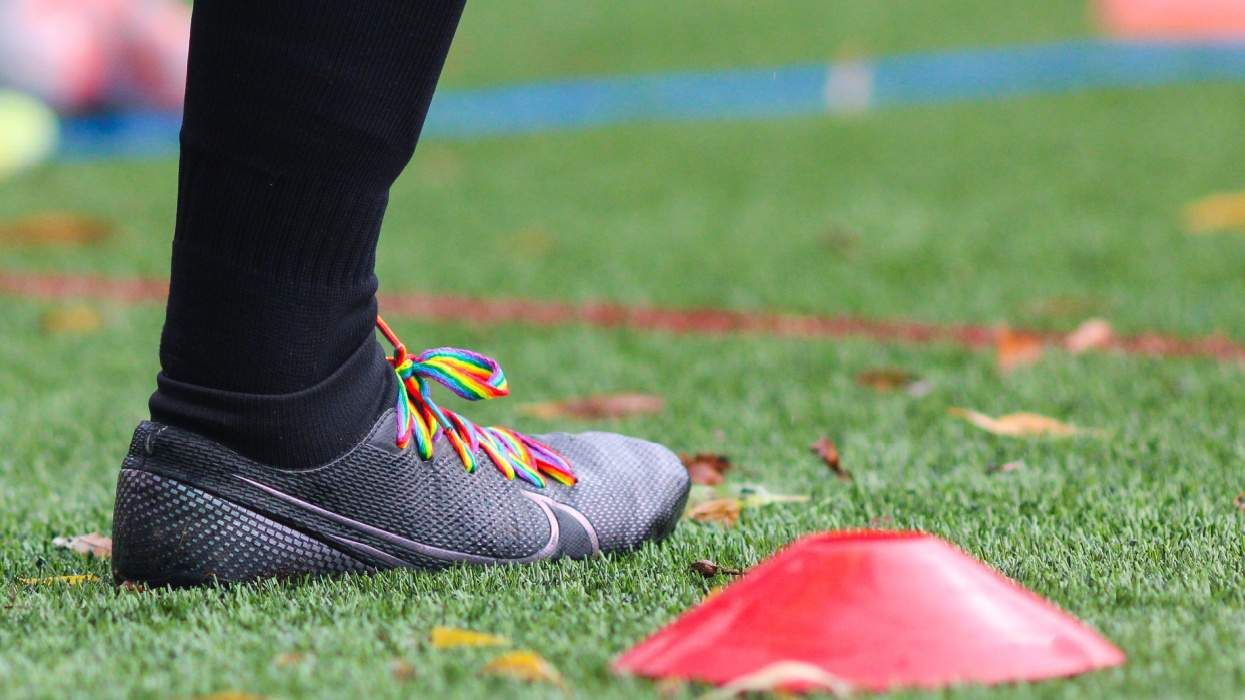At the Stonewall Inn in New York City, 50 years after LGBTQ citizens stood up and fought back against police brutality, a surprise concert was held to commemorate the event. One of the stars performing is Grammy-winning musician Alicia Keys, a lifelong New Yorker. Keys spoke exclusively to The Advocate's David Artavia about what lies ahead in the fight for equality.
The Advocate: What does today mean for you?
Alicia Keys: For me, I was born and raised in New York City. I feel like one of my favorite things about living in New York since I was a little girl I always knew all kinds of people: all colors, all religions, all styles, all beliefs, all loves, all people.
I always felt really blessed because I was fortunate to not be someone who wasn't exposed to diversity. And so much of the world is not exposed to the beauty and richness of what diversity looks like. It's so incredible -- who my friends are, what I hear, what I listen, what I learn and a lot of that is attributed to having growing up in New York City.
It's powerful, and today, we as a community of human beings we have a lot to fight for, stand up for, care about, be about, and so we have to show up and remind each other that we're here for each other.
What do you think the next 50 years hold for the civil rights fight?
Acceptance, tolerance, and equality -- for all people -- no matter what you look like, live like, believe like, is imperative. We have so far to go on so many levels, but we are more conscious, we're more awake, and more aware. Even though sometimes I get frustrated because it feels like it's taking forever. It's like, come on guys, let's just jump ahead.
Where we're going is up to us and what we teach our kids. It's up to what we show the people we're around and how we ourselves behave. All those things change the energy, change the dialogue, changes the conversation. It holds people accountable and makes people learn. The majority of it is mostly ignorance -- not being aware, not knowing, and also not being open to knowing because maybe we've closed down or we've heard someone say a certain thing for so long we believe it's true. That's not how it goes -- you have to find your own truth, find your own way, and go out in the world and live and experience.
We have to get off this judgment train that we're way too on. In the next 50 years, with more time, awareness, getting out in the world, and meeting people from all different walks of life ... get out of your comfort zone and judgment zone. Learn, grow, be aware -- with that in mind, the next 50 years will be incredible.
My son is 8 and his consciousness for what love looks like is totally diverse. He doesn't have a set determined way of what it looks like. He doesn't think about it. That excites me because all his friends think the same way. That's the future.
What is your son and his friends going to fight for?
For fairness. Everyone on the planet knows what it's like to not treated fairly. Even in the simplest way as a child, you experience it and understand unfairness.
What will break down walls is if we catch ourselves before we draw all those conclusions that are in our heads, because so much of it is so systemic. We just get taught it and taught it until it's in our DNA. If we could just open up and say I don't know how that would be, let me find out. And then draw a conclusion.
How has social media played a role in tolerance and understanding?
It's good and bad. I think there's much more accessibility to people [through social media]. If you lived in a small town with 600 people you might not have access to more than those 600 people, so that's what you know, what those 600 people have showed you.
With social media you get to see the whole world unfiltered through the eyes of those sharing it with us, and that's wonderful. You also have to be cautious; it's other people's opinions and can affect our own thoughts. Taking it with a balance is so important.
Your music is so awakening. Who are you singing to?
Everybody. Everybody who's been like me, who's ever been unsure, vulnerable, had anxiety or stress, who's ever wondered if they're enough. Those looking for themselves and want to be pure in who you are without bending and changing because you think someone will like you that way. Anyone who has a heart and wants to feel the light and doesn't want to drown in these energies that feel heavy and dark.
What is a hero to you?
A hero to me is someone who believes in something deeply and found their way to it and has stood up for people along the way. Maybe they've wanted something, not stopped until they saw the movement towards that thing and along that way brought people with them, encouraged them, gave them courage, and stands up for people.
My mother is a hero to me. She's shown me a certain tenacity, a certain strength, a certain determination. Everyone out here today is hero; the heroes we're celebrating that made today possible. The revolution that today represents and the reason for us to continue to open the doors and continue the conversation and not stop moving forward. Heroes are everyday people. People who want something bad enough they won't stop until it happens.















